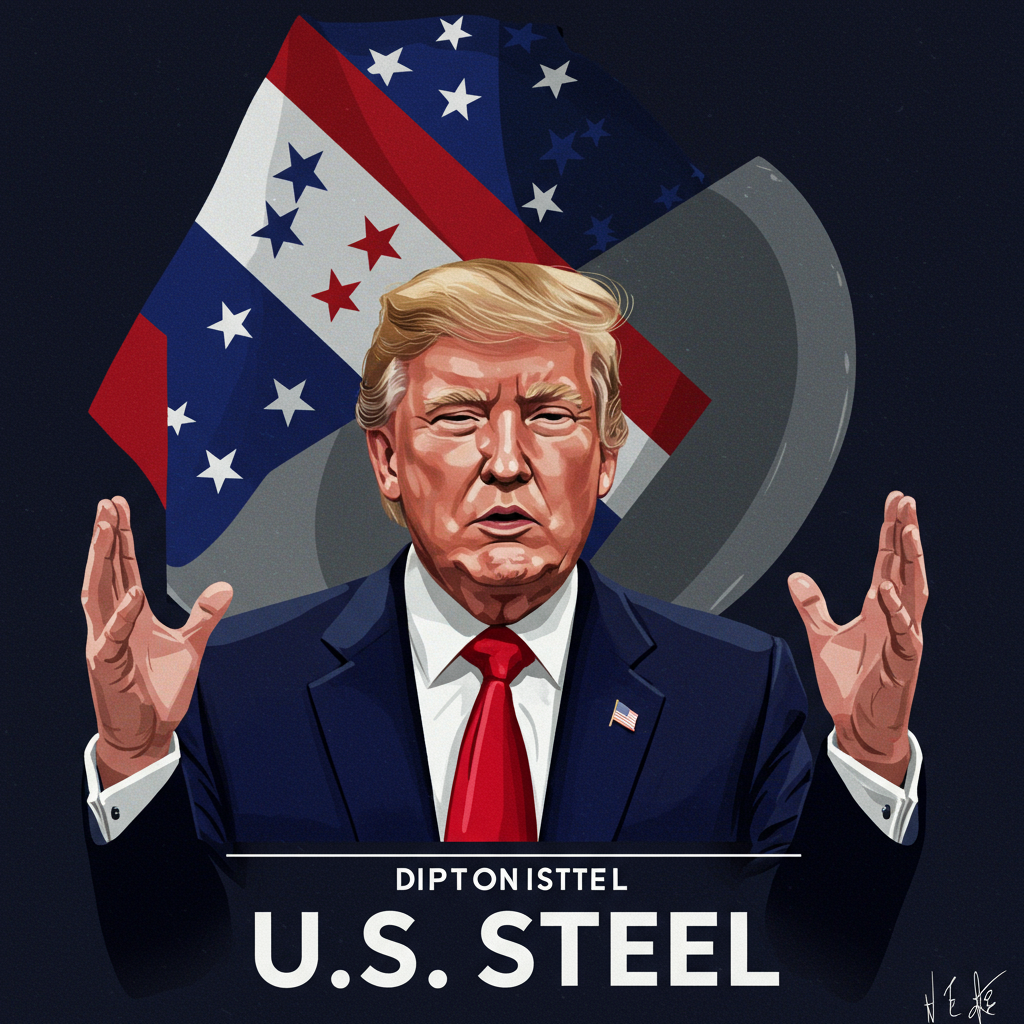Nippon Steel’s pursuit of U.S. Steel for nearly $15 billion is far more than just a corporate takeover attempt; it’s a high-stakes saga entangled with American politics, national security concerns, and the future of a foundational U.S. industry. The proposed acquisition has navigated intense opposition and presidential intervention, leaving its ultimate fate in a state of considerable uncertainty.
A Deal Driven by Global Ambition
Japan’s leading steelmaker, Nippon Steel, initially announced its ambitious bid in December 2023. Their primary motivation stems from the need to secure growth in overseas markets as demand declines in their home country due to a shrinking population. Targeting expansion in areas like India, Southeast Asia, and importantly, the United States, the company sees U.S. Steel as a strategic asset to bolster its global footprint. Under the proposal, U.S. Steel would become a subsidiary, maintaining its historic name and headquarters in Pittsburgh.
Facing Fierce Political and Labor Headwinds
The proposed acquisition quickly ignited a political firestorm and drew sharp criticism from powerful domestic interests. Both President Joe Biden and President-elect Donald Trump voiced strong opposition to the deal during their respective times in office or on the campaign trail, emphasizing the importance of maintaining Ukey American industries under U.S. ownership.
Perhaps the most vocal critic has been the United Steelworkers (USW) union, representing U.S. Steel employees. The union remains adamantly against the takeover, citing major concerns over potential job losses, the security of existing contract terms, and broader national security implications of a foreign entity controlling a critical domestic supply chain. USW leaders view Nippon Steel as an “economic competitor” and argue that U.S. Steel is financially capable of remaining strong independently, seeing Nippon’s offer primarily as a benefit for executives and investors.
The Biden Administration’s Block
Adding a dramatic turn, President Joe Biden formally blocked the acquisition during his term following a review by the Committee on Foreign Investment in the United States (CFIUS). Biden cited the need to maintain U.S. ownership of major domestic steelmaking capacity for national interests as the reason for his decision, fulfilling an earlier campaign promise.
Nippon Steel and U.S. Steel reacted swiftly and strongly, issuing a joint statement that criticized Biden’s decision as politically motivated and a violation of due process. They contended there was no credible evidence of a national security risk and warned the block sent a “chilling message” to allied nations considering significant investment in the U.S. The companies indicated they were prepared to pursue legal action to protect their rights.
A Deal Resurrected Under Trump?
Despite the formal block, the deal appears to have found a potential path forward under the subsequent Trump administration. Reports suggest the Trump administration has signaled a possible willingness to allow the acquisition to proceed in some form, a notable shift from previous stances and a stark contrast to the Biden administration’s decision. Legal filings related to the CFIUS review also suggest movement.
Adding intrigue to the renewed discussions, President Trump has introduced the concept of the U.S. government potentially holding a “golden share” in U.S. Steel. Trump stated this mechanism, which he suggested the president would control, could grant the federal government an unusually substantial amount of influence over the company’s corporate decisions. He indicated he was insisting on such expansive control as a condition for allowing the deal to close.
Nippon Steel’s president has commented that the company is nearing a mutual understanding with the U.S. government, framing the potential outcome as an investment that would strengthen the American steel industry and manufacturing sector. While negotiations continue, potentially based on the original merger agreement, the specifics of how a “golden share” or alternative investment structure would function remain publicly unclear, adding to the complexity surrounding the deal.
Pledges, Perspectives, and Uncertainties
Amidst the political and regulatory wrangling, Nippon Steel has sought to alleviate concerns by making significant pledges. The company has promised to preserve the legacy of U.S. Steel, protect existing jobs, pensions, and benefits, explicitly committing to no layoffs or plant closures. They project the deal could bring substantial economic benefits to the region through investment and job creation.
Expert analysis suggests that Nippon Steel’s commitment to keeping U.S. Steel factories operational and investing in enhancements could help preserve U.S.-based production of specialty steels. Some analysts also contend there is no clear evidence of military security risk from the acquisition by a company from a close ally like Japan, noting the U.S. already relies on steel imports from allied nations.
The fate of the Nippon Steel-U.S. Steel deal remains a complex puzzle. While a formal block occurred under one administration, it appears to be under renewed, albeit restructured, consideration under another. The potential for direct government control via a “golden share” adds a unique twist to this high-stakes international bid, highlighting the intricate interplay of global business ambitions, domestic political pressure, national security reviews, and labor concerns that will ultimately determine the future of one of America’s most iconic companies.




